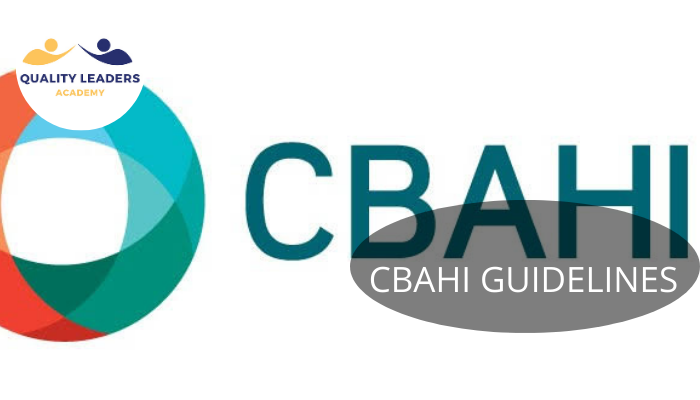The CBAHI accreditation standards serve as the foundation for healthcare accreditation in Saudi Arabia, ensuring that hospitals and medical centers meet stringent safety and quality requirements. Developed by the Central Board for Accreditation of Healthcare Institutions (CBAHI), these standards help facilities enhance patient care, reduce medical errors, and improve overall healthcare services.
CBAHI’s primary goal is to create a healthcare system that prioritizes patient safety, efficiency, and continuous quality improvement. By implementing these standards, healthcare institutions can systematically assess their strengths and weaknesses, address gaps in care, and ensure adherence to internationally recognized best practices. The standards focus on critical aspects such as infection control, medication management, and patient rights, ensuring a holistic approach to healthcare excellence.
CBAHI ACCREDITATION PROGRAMS

CBAHI offers several accreditation programs designed to cover various healthcare sectors, ensuring high standards across different medical facilities:
Hospital Accreditation Program:
Evaluates hospitals based on rigorous quality and safety measures to ensure optimal patient care.
Primary Healthcare Center Accreditation Program:
Focuses on improving service delivery and patient safety in primary healthcare centers.
Medical Laboratory and Blood Banks Accreditation Program:
Ensures that laboratories and blood banks meet stringent operational and safety standards.
FUTURE ACCREDITATION PROGRAMS
CBAHI is also expanding its accreditation efforts with new programs aimed at enhancing healthcare quality across additional sectors:
Home Healthcare Services Accreditation Program:
Home healthcare is a growing field in Saudi Arabia, providing skilled care for patients in their homes. This service includes nursing care, physical therapy, and other medical services aimed at improving patient independence and reducing hospital stays. Due to the unique challenges of home healthcare, CBAHI is developing a specialized accreditation program to ensure high-quality service delivery.
Ambulatory Healthcare Centers Accreditation Program:
Ambulatory Healthcare Centers include outpatient clinics, polyclinics, diagnostic centers, and dental centers that do not provide inpatient services. CBAHI’s accreditation program for these centers ensures that they meet national quality standards and licensing requirements. All eligible ambulatory care centers in Saudi Arabia must register with CBAHI for accreditation to maintain high-quality service delivery.
Each of these programs follows a structured evaluation process, where facilities undergo a comprehensive self-assessment before an external review by expert surveyors. This process helps institutions align with national and international healthcare standards while continuously improving their services.
WHAT ARE CBAHI ACCREDITATION STANDARDS?
CBAHI accreditation standards define the essential processes and structures required to deliver safe and effective healthcare. They are developed by experts in the field and serve as a benchmark for evaluating healthcare facilities.
The CBAHI standards categorize requirements into three key types:
Structural standards:
Cover essential hospital infrastructure, including medical equipment, facility design, and staffing levels.
Procedural standards:
Focus on clinical processes such as patient assessment, treatment protocols, and medication administration.
Outcome standards:
Measure healthcare performance through indicators like patient safety rates, infection control, and surgical success rates.
By adhering to these CBAHI accreditation standards, healthcare institutions can align with Saudi Arabia’s national healthcare vision while improving patient outcomes. Compliance with these standards ensures that hospitals and clinics provide a consistent level of high-quality care, leading to better patient experiences and improved trust in the healthcare system.
HOW ACCREDITATION BENEFITS HEALTHCARE FACILITIES
Achieving accreditation under CBAHI standards provides numerous benefits, including:
Strengthening organizational structure and leadership:
Accreditation establishes clear governance models and management systems, ensuring that healthcare institutions function efficiently.
Enhancing patient safety:
By minimizing risks and reducing medical errors, CBAHI standards help protect patients from preventable harm.
Boosting public confidence:
When a healthcare facility is accredited, it signals to the community that it meets high standards of care, improving trust and reputation.
Providing objective evaluations:
Accredited facilities receive assessments from expert surveyors who offer valuable insights for further improvement.
Encouraging efficiency and lean healthcare practices:
Accreditation promotes better resource allocation, reducing waste, and optimizing service delivery.
Increasing competitiveness in the healthcare sector:
Accredited facilities attract more patients and secure a stronger market position.
- Aligning with Ministry of Health regulations: The Saudi Ministry of Health is linking CBAHI accreditation to licensing, making compliance a necessity for healthcare providers.
- Facilitating insurance reimbursements: Many insurers require accreditation as a condition for reimbursement, benefiting both hospitals and patients.
- Promoting continuous quality improvement: Accreditation encourages ongoing monitoring and enhancement of healthcare services.
- Providing educational opportunities: Staff training and development are integral to CBAHI accreditation, ensuring that healthcare professionals stay updated on best practices.
THE ROLE OF CBAHI IN SAUDI ARABIA’S HEALTHCARE VISION

By implementing the CBAHI accreditation standards, Saudi Arabia ensures:
- A standardized healthcare system: Hospitals across the country follow the same high-quality care principles.
- Improved healthcare service delivery: Accreditation drives better patient experiences and treatment outcomes.
- Greater patient trust: People feel more confident seeking care in accredited hospitals and clinics.
Saudi Arabia’s Vision 2030 prioritizes healthcare transformation, and CBAHI accreditation plays a crucial role in achieving this goal. By ensuring compliance with rigorous standards, CBAHI helps build a world-class healthcare system that meets both national and international expectations.
CBAHI TRAINING PROGRAMS
If you want trusted training in CBAHI accreditation, Quality Leaders Academy offers expertly designed programs, to help healthcare professionals master accreditation standards and compliance requirements. These courses provide practical insights, expert guidance, and hands-on strategies to ensure successful accreditation. Investing in this training is a crucial step toward enhancing healthcare quality, and patient safety, and aligning with Saudi Arabia’s Vision 2030 healthcare goals.
The CBAHI accreditation standards play a crucial role in shaping the healthcare landscape in Saudi Arabia. By maintaining strict accreditation standards, CBAHI ensures that healthcare facilities prioritize patient safety, enhance service quality, and align with national healthcare goals. As accreditation becomes a mandatory requirement, hospitals and clinics must continuously strive for excellence, ultimately leading to a safer and more efficient healthcare system in the Kingdom.
Resources:
https://portal.cbahi.gov.sa/english/accreditation/about-accreditation


























